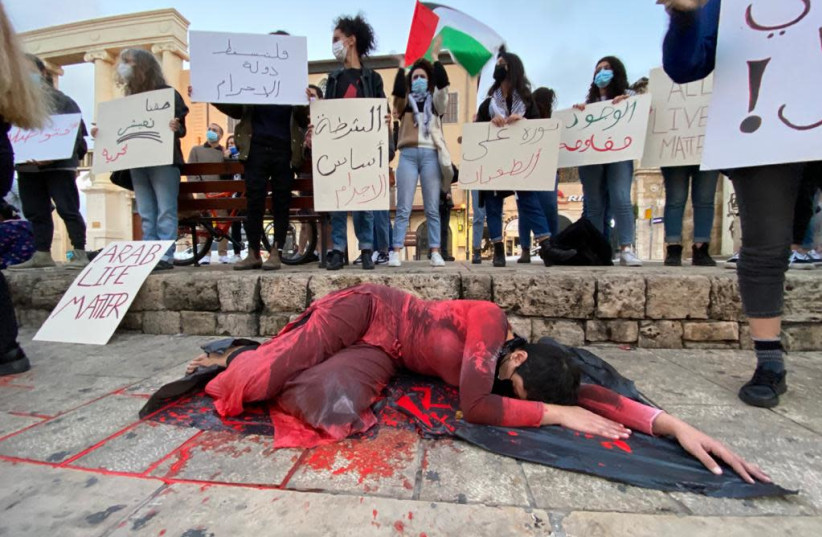Israel’s national failure: Not stopping violent crime in the Arab sector
if(window.location.pathname.indexOf(“656089”) != -1){document.getElementsByClassName(“divConnatix”)[0].style.display =”none”;}else if(window.location.pathname.indexOf(“/israel-news/”) != -1){ document.getElementsByClassName(“divConnatix”)[0].style.display =”none”; var script = document.createElement(‘script’); script.src = ‘https://player.anyclip.com/anyclip-widget/lre-widget/prod/v1/src/lre.js’; script.setAttribute(‘pubname’,’jpostcom’); script.setAttribute(‘widgetname’,’0011r00001lcD1i_12258′); document.getElementsByClassName(‘divAnyClip’)[0].appendChild(script);}
 A protest against the rising crime and violence in the Arab sector in Israel, Jaffa, Saturday, February 6, 2021. (credit: SASSONI AVSHALOM)
A protest against the rising crime and violence in the Arab sector in Israel, Jaffa, Saturday, February 6, 2021. (credit: SASSONI AVSHALOM)




Comments are closed.